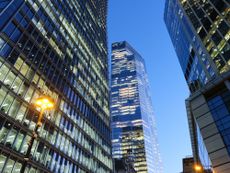Stocks and Shares
The latest news, updates and opinions on Stocks and Shares from the expert team here at MoneyWeek
Explore Stocks and Shares
-

Magnificent Seven earnings: Alphabet stock falls on AI capex increase
Magnificent Seven earnings season continues, with Alphabet’s earnings beat overshadowed by its spending guidance
By Dan McEvoy Last updated
-

The top stocks and funds to buy according to DIY investors
Nvidia dropped out of Interactive Investor’s top ten most-bought stocks in January for the first time in six months as investors veered away from US megacaps
By Dan McEvoy Last updated
-

Three companies with deep economic moats to buy now
Opinion An economic moat can underpin a company's future returns. Here, Imran Sattar, portfolio manager at Edinburgh Investment Trust, selects three stocks to buy now
By Imran Sattar Published
Opinion -

Energy, healthcare and utilities: how to tap into AI in the real economy
AI promises to add to the productivity and profitability of much of the economy beyond tech. Here’s two themes to tap into AI in the real economy.
By Dan McEvoy Published
-

Should you sell your Affirm stock?
Affirm, a buy-now-pay-later lender, is vulnerable to a downturn. Investors are losing their enthusiasm, says Matthew Partridge
By Dr Matthew Partridge Published
-

Beeks – building the infrastructure behind global markets
Beeks Financial Cloud has carved out a lucrative global niche in financial plumbing with smart strategies, says Jamie Ward
By Jamie Ward Published
-

Profits at the final frontier – how to invest in space
Getting into space has never been cheaper thanks to private firms and reusable technology. That has sparked something of a gold rush in related industries, says Matthew Partridge
By Dr Matthew Partridge Published
-

UK dividends rose in final quarter of 2025, but share buybacks ate into investor payouts
Last year saw dividend growth continue to fall below pre-pandemic averages, against a backdrop of increasing share buybacks.
By Daniel Hilton Published
-

Three emerging-market stocks to diversify your portfolio
Opinion Omar Negyal, portfolio manager, JPMorgan Global Emerging Markets Income Trust, highlights three emerging-market stocks where he’d put his money
By Omar Negyal Published
Opinion
